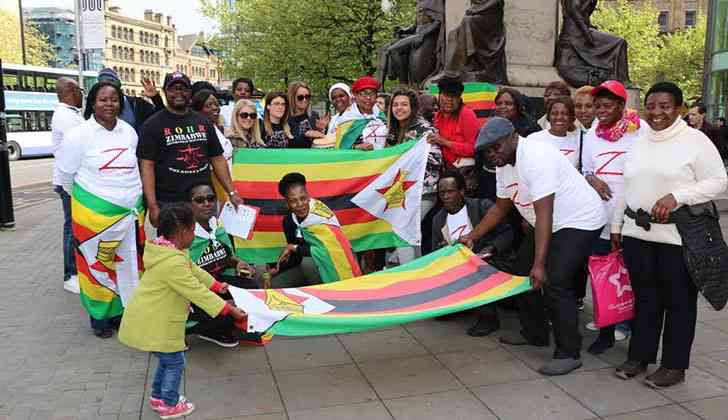
THE past few decades have seen changes whereby economic success is now being influenced by knowledge-based industries and businesses commonly referred to as intellectual property.
Competition in the modern economy has intellectual property at its core, which has significantly increased the need to encourage creative activity and protect intellectual property. To ensure the protection of intellectual property rights globally, the World Intellectual Property Organisation was established in 1967.
While this is a specialist agency of the United Nations which has the objectives of promoting intellectual property policy, services and information throughout the world, individual States have had to make efforts to protect intellectual property rights within their territories. Just like the rest of the world, Zimbabwe is embracing the value of intellectual property and acknowledging the necessity to protect the rights which flow from creative activity.
What is intellectual property law?
Intellectual property refers to creations of the mind, such as inventions, literary and artistic works, industrial designs, plant varieties, geographical indications, integrated circuit designs and trademarks used in commerce and industry. Intellectual property law refers to legislation which promotes and protects the legal rights which flow from the ownership of intellectual property. Intellectual property protection is vital because it allows creators or owners of intellectual property to benefit from their investment and creations by giving them control over how their property is used.
Characteristics of intellectual property rights
Exclusive
Intellectual property rights enable owners to have exclusivity that helps to reduce the risks and uncertainties associated with the introduction of a new or improved product into the marketplace. They provide the owners of intellectual property rights, a multiplicity of options to manage their innovation, knowledge and creativity. The essence of the principle of exclusivity in intellectual property is to decrease the likelihood of copying or imitation by competitors and increase the practical options for commercialising new or improved products.
- Mavhunga puts DeMbare into Chibuku quarterfinals
- Bulls to charge into Zimbabwe gold stocks
- Ndiraya concerned as goals dry up
- Letters: How solar power is transforming African farms
Keep Reading
Territorial
Most intellectual property rights can only be protected where they are registered, they do not extend beyond the territory where they are formally recognised as the owner’s property. An illustration is how a patent registered in Zimbabwe is not automatically protected in South Africa unless if it is registered there. The principle of territoriality allows for each country to create intellectual property laws that work for its respective jurisdiction. It is important to highlight that the Agreement of Trade Related Aspects of Intellectual Property (TRIPS), provides guidelines and minimum standards on how intellectual property rights ought to be protected. The TRIPS Agreement is an international agreement between all the member nations of the World Trade Organisation, which is built on territoriality and national treatment. It is equally important to highlight that the principle of territoriality does not apply in certain circumstances. For example, literary works are protected by copyright which arises automatically for works that are the result of independent labour and creativity. Copyright registration is not a prerequisite for protection and enforcement. Similarly unregistered trademarks are protected under common law and have certain privileges recognised under the Trade Marks Act.
Transferable
Intellectual property rights can be transferred from the owner to another person. The rights can be transferred through assignment, licence, inheritance or operation of law. They can be temporarily transferred under a licence or permanently by way of an assignment.
Intellectual property rights recognised in Zimbabwe
Copyright
A copyright describes the rights that creators have over their literary and artistic works. Copyrights in Zimbabwe are protected by the Copyright and Neighbouring Rights Act [26:05]. The Act defines a copyright as a real right which subsists in a work and which entitles its owners exclusively to do in Zimbabwe and to authorise others to do the thing which the Act designates in relation to their work.
In the English case of Designer’s Guild Limited v Russell Williams (Textiles) Limited 4 , the court held that: “The law of copyright rests on a very clear principle — that anyone who by his or her own skill and labour creates an original work of whatever character shall, for a limited period, enjoy an exclusive right to copy that work. No one else may for a season reap what the copyright owner has sown.”
Furthermore, in the case of Galago Publishers (Proprietary) Limited and Anor v Gideon Henry Erasmus 5, the court held that: “Copyright protects the skill and labour employed by the Plaintiff in production of his work. That skill and labour embraces not only language originated and used by the Plaintiff, but also such skill and labour as he has employed in selection and compilation.”
Section 10 of the Act provides the works eligible for copyright and these include literary works, musical works, artistic works and audio-visual works. The Act goes on to provide that ownership of copyright vests in the author of the work concerned.
However, in circumstances where work is created during the course of employment or by virtue of having been commissioned, the copyright shall vest in the employer or the person who commissioned the work.
Trademarks
A trademark is a mark used or proposed to be used by a person in relation to goods or services for the purposes of distinguishing the goods or services in relation to which the mark is used from the same kind of goods and services connected in the same course of trade with any other person. Trademarks in Zimbabwe are protected by the Trademarks Act [26:04] (the Act) and under the common law. A trademark serves the purpose of indicating a connection between goods or services and the person having a right. Secondly, its purpose is also to distinguish goods or services from those belonging to other persons.
The Act provides that trademark rights arise from a statute as well as from common law. Trademarks can be registered as goods and services and there are 34 classes under which goods may be registered and nine classes under which services may be registered. The owner of a trademark is permitted at law to transfer their rights to another person for a consideration. The registration of a trademark in Zimbabwe is valid for a period of ten years but may be renewed from time to time.
Patents
A patent is an exclusive right granted for an invention which is a product or a process that provides, in general, a new way of doing something or offers a new technical solution to a problem.
Generally, a patent grants the patentee in the territory wherein it is registered, the right to exclude other persons from making, using, exercising, disposing or importing the invention so that the patentee shall have and enjoy the whole profit and advantages accruing by reason of the invention.
Patents in Zimbabwe are protected by the Patents Act [26:03]. The characteristics of a patent are that the invention must be novel – it must not have been known prior to the date of application for a patent. Secondly, the invention should not be obvious to a person skilled in the field of the technology of the invention. Lastly, the invention must be useful and capable to carry out the function as outlined in the patent application. The requirements for registration of a patent are not independent of each other, all the requirements have to be satisfied in order for the patent to be registered. A patent can be registered for a period of twenty years.
It is important to highlight that maintenance fees are paid on an annual basis in order to maintain the validity of the patent. Where a patent lapses for non-payment of maintenance fees, third parties may exploit the invention without hindrances.
Industrial designs
An industrial design is the ornamental aesthetic aspect of a useful article that makes an article attractive and appealing, therefore adding commercial value to the product and increasing marketability. Industrial designs in Zimbabwe are protected by the Industrial Designs Act [26:02]. The Act provides that a design can be registered if it is new or original. The author of a design is treated as the proprietor of the design unless if the design is executed by the author for another person for a valuable consideration.
In that case, the proprietor will be the other person. Registration of a design ensures that the owner has exclusive rights and the design is protected against unauthorised copying or imitation by third parties.
Geographical indication
A geographical indication is an indication, however expressed, which identifies a product as originating in a particular area, where some quality, reputation or other characteristic of the product is essentially attributable to its geographical origin.
Geographical indications in Zimbabwe are protected by the Geographical Indications Act [26:06] which prohibits the application of misleading geographical indications to any product. A geographical indication is treated as misleading if it suggests that the product originates in an area other than its true area of origin or if it misleads the public as to the area of origin of the product. 16 Examples of goods which are eligible for protection under the Geographical Indications Act are Mazoe orange crush, a popular concentrated juice which derives its name from the Mazowe town where oranges are grown. Another example is Tanganda tea which derives its name from Tanganda in Chipinge.
Plant breeders’ rights
These are rights granted to the breeder of a new variety of a plant giving them exclusive rights which prohibit third parties from selling, reproducing or multiplying reproductive material from the new variety. Plant Breeders Rights in Zimbabwe are protected by the Plant Breeders Rights Act [18:06]. The Act provides that registration of plant breeders’ rights can only be done if the variety is new. A plant is regarded as a new variety if it was not offered for sale or marketed in Zimbabwe or in any other country prior to the date of application. Plant breeders’ rights may be granted to the State or the government of a reciprocating country, an individual who is a citizen or resident of Zimbabwe or a reciprocating country or a company which carries on business or has its principal office in Zimbabwe or a reciprocating country. Plant breeders’ rights are transferrable and registration is valid for twenty years.
Integrated circuit layout designs
Integrated circuit-layout designs relate to the functional design of the three-dimensional disposition of all or some of the electrical, electromagnetic or optical elements and circuitry of an integrated circuit, and include a design of an integrated circuit that is intended for manufacture. They are protected by the Integrated Circuit-Layout Designs Act [Chapter 26:07]. The Act provides that integrated circuit layout designs can be registered if they are original and not been exploited commercially anywhere in the world for more than two years. A lay-out design shall be considered to be original if it is the result of its creator’s own intellectual effort and is not common. The Act prohibits third parties from reproducing, importing, selling or distributing the whole or any part of the layout design.
Conclusion
Intellectual property rights are exclusive, territorial and transferrable. It is beneficial to protect intellectual property rights through registration. Registration in most cases reduces the risk of exploitation by third parties.
- Tanaka Kachara is a lawyer and writes here in her personal capacity. The article does not constitute legal advice. Should you require specific legal advice, kindly contact the writer at [email protected]










